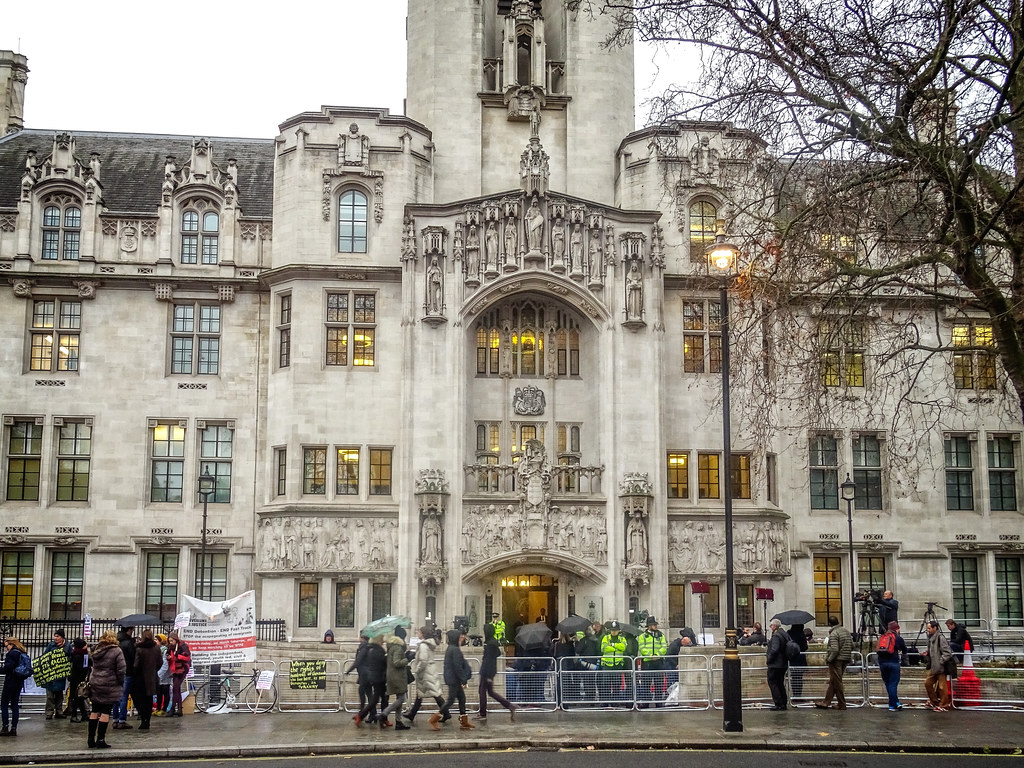UK Supreme Court's Ruling Raises Concerns Over Trans Rights and Legal Clarity
The central issue was whether, under the Equality Act 2010, the term “woman” should be understood to include transgender women.

- Country:
- United Kingdom
A group of independent United Nations human rights experts has expressed deep concern about the broader implications of a recent UK Supreme Court judgment interpreting the legal definition of “woman” under the Equality Act 2010. While the Court’s decision was focused on statutory interpretation, the experts warn that it could severely undermine the rights and protections of transgender individuals, creating significant legal uncertainty and potential for increased discrimination, especially in education, workplaces, and public services.
Background of the Judgment
The Supreme Court ruling stems from a case in Scotland concerning the inclusion of transgender women—those who have gender recognition certificates—within public sector equality and diversity measures. The central issue was whether, under the Equality Act 2010, the term “woman” should be understood to include transgender women.
In its judgment, the Court concluded that, for the purposes of the Equality Act, “woman” refers to biological sex. While the judgment made clear it was not defining “woman” culturally or politically, it acknowledged the complexity and tension between two foundational pieces of legislation: the Equality Act 2010 and the Gender Recognition Act 2004. The former provides for protections against discrimination based on sex, gender reassignment, and perceived sex, while the latter ensures that individuals with gender recognition certificates are to be treated “for all purposes” as their acquired gender.
Legal Contradictions and Risks of Misinterpretation
Despite its legal nuance, the ruling has been widely misinterpreted in public discourse, the experts noted. Many have incorrectly asserted that the judgment redefines sex in UK law or revokes existing protections for transgender individuals.
“The judgment does not remove the legal protections trans people currently enjoy under the Equality Act,” the experts clarified. “But it may be used to justify exclusionary policies that further stigmatise and marginalise an already vulnerable population.”
They further warned that the decision risks entrenching legal confusion by placing the Equality Act in direct conflict with the Gender Recognition Act. Without legislative reform, this tension could lead to inconsistent and discriminatory applications across various sectors, particularly where policies rely on rigid interpretations of “biological sex.”
Implications for Transgender Inclusion in Public Life
The experts emphasized that this ruling could have chilling effects on transgender inclusion in all aspects of public life. With the judgment possibly interpreted as supporting biological sex-based access to single-sex spaces, employers, schools, and public institutions may feel legally justified—or even compelled—to exclude transgender individuals from spaces aligned with their gender identity.
“This could lead to trans women being barred from women’s spaces and trans men being excluded from men’s spaces, resulting in no safe access for trans people at all,” the experts warned.
Such outcomes are especially troubling in workplace and educational settings, where inclusion and psychological safety are vital. The experts stressed that this legal ambiguity could serve to empower those advocating for exclusionary policies, further isolating transgender individuals and undermining their right to equal participation.
Concerns Over Equality Commission’s Interim Guidance
Adding to the alarm, the experts criticized the Equality and Human Rights Commission (EHRC) for issuing interim guidance that they say interprets the ruling in a manner that encourages exclusion based on biological sex. They fear this guidance could be adopted widely, worsening the legal and social climate for transgender people.
In particular, the EHRC’s guidance could lead to situations where organisations implement blanket bans on trans individuals in single-sex spaces without a nuanced understanding of individual circumstances, human dignity, or the psychological and physical harm such exclusions might cause.
Calls for Legal Reform and Human Rights Compliance
The experts urged UK lawmakers to take immediate and decisive action to address the emerging legal contradictions and ensure compliance with international human rights standards. They recalled that the United Kingdom has previously been found in violation of the European Convention on Human Rights for failing to provide adequate legal recognition of transgender people—failings that led to the creation of the Gender Recognition Act in 2004.
If corrective reforms are not enacted soon, the UK could again find itself the subject of international legal challenges and human rights scrutiny.
“The law must be clear, coherent, and consistent with international human rights standards,” the experts stated. “We urge UK lawmakers to reform and align the legal framework to ensure dignity, equality, and non-discrimination for all, regardless of gender identity.”
Moving Forward
In a time where inclusion, safety, and equity should be the goals of all policy and legal interpretation, this ruling—and its potentially far-reaching applications—highlights the urgent need for legislative clarity and public education. As the experts concluded, the UK’s legal system must not only protect transgender individuals but reflect the realities of their lives, experiences, and identities.










